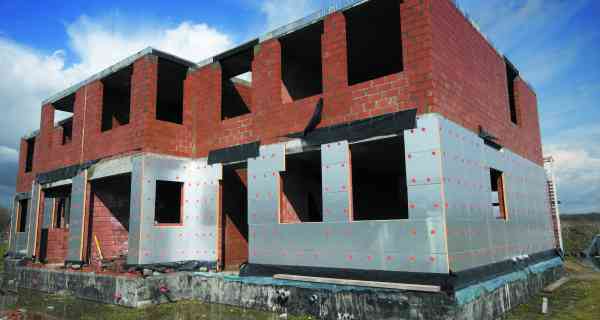Making steps to zero carbon
Simon Storer, chief executive of the Insulation Manufacturers Association, discusses the role of insulation and the steps towards a zero carbon industry, as well as the case for PIR and PUR insulation in reduce carbon emissions in homes across the country
The enormous challenge of achieving a net zero carbon built environment will require a significant step change in all areas of the construction industry. The energy efficiency of homes and buildings will have a key role to play and good insulation will be critical if they are to become more energy efficient and sustainable. The installation of PIR and PUR insulation is a proven solution offering value and performance and is the most cost-effective way to saving energy in homes and buildings.
The challenge is to improve the energy performance standards of new homes and then actually build to those standards, as well as dramatically improve all existing houses and other buildings through a nationwide deep-retrofit programme. Energy efficiency is at the heart of the long-awaited Future Homes Standard, which is in line with last year’s Committee on Climate Change (CCC) report, UK housing: fit for the future?. The new standard has proposed improved fabric efficiency standards to be introduced by 2025, with some improvements being introduced later this year, to minimise heat loss from walls, windows, doors, floors and roofs, as well as through far more attention to detail at junctions.
Whilst many more affordable homes need to be built to an overall higher performance level to reduce costs and emissions, all homes need to be finished to a much better built quality. This will start to reduce, and possibly eliminate the ‘performance gap’ between design performance and what is built.
The role of PIR and PUR insulation in achieving energy efficient buildings and a sustainable future must not be underplayed. Using PIR insulation with high thermal efficiency, will make a big difference between a building’s success or failure. The thermal performance of a building envelope makes a significant contribution to reducing the overall building energy usage – so tighter U-values in walls, floors and roofs will help to deliver the standards required.
With lambda values as low as 0.021 W/mK, PIR insulation is available as boards, blocks, and composite panels and PUR as spray and cavity injected insulation. Performance can be achieved with products that are thinner than many other commonly used insulants.
Get the fabric right
Furthermore, competency in installation is vital because when a high performing product such as PIR/PUR is not installed correctly, it could lessen performance and undermine thermal performance. All contractors need to make sure that not only the levels of site supervision are of a good standard, but the manufacturer’s installation instructions are followed and installation instructions around potential cold thermal bridges and awkward details are achieved. Once the high-quality building fabric has been completed there should be no need to worry about it.
If the housing stock is to meet long-term performance standards then we must have more thermally-efficient building envelopes, which in turn will result in improved comfort for occupants. Getting the fabric of the building properly insulated should always be the starting point. It is a fundamental step towards achieving the net-zero target as well as compliance with the energy performance requirements of the revised Building Regulations Part L.

Building passport
Another challenge in raising energy efficiency standards is our lack of ability to measure and demonstrate a building’s performance over its lifetime. Residential and commercial properties could therefore benefit from a building passport, with regular checks being made, normalising the concept that buildings, like vehicles, must be judged over time and meet certain standards. This would give also provide full traceability of products and services installed into a building, so that when it is bought, sold or renovated, or after a certain amount of time, an accurate log is kept.
A passport could contain building-related information on elements such as energy consumption/production, maintenance and building plans and should be transferable between building owners. This could go way some to ensuring buildings are sustainable and perform to the standards intended.
Sorting out housing is just one part of the mammoth task towards net-zero 2050, but this coupled with a re-think in how the UK generates energy and rebuilds its energy systems to be more sustainable, will make some headway to achieving our climate change aims and addressing the global warming challenge.
The Insulation Manufacturers Association is the trade association that represents both the Polyisocyanurate (PIR) and Polyurethane (PUR) insulation industry in the UK. Its members manufacture rigid insulation that provides around 40 per cent of the total thermal insulation market in the UK.


